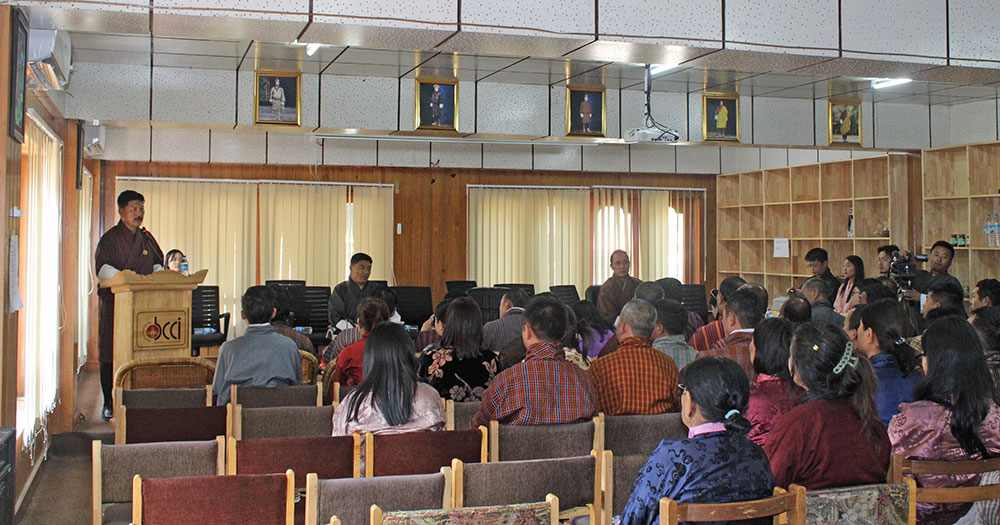Thukten Zangpo
As the loan deferment for the various sectors ends on June 30 this year, the business community expressed their concerns on deferring loans to ease their financial burden.
This was shared during the Bhutan Chamber of Commerce and Industry’s (BCCI) consultation meeting held in Thimphu on April 23.
Similar meetings were held in ten Dzongkhags where similar concerns were expressed.
With the loan repayment to resume by July, the banks have notified their customers to contact their respective credit officers or visit branches to obtain the latest information on loans and decide the treatment of accumulated dues during the deferment period.
Executive director of Singye Group of Companies, Phuntsho Wangdi, said that businesses were not doing well financially due to the limited money circulation in the economy over the last three years.
He requested the government to increase the payment period of the interest accrued in the fixed equated installment facility (FEIF) account from five to ten years.
“If businesses are financially stable during loan deferral, they could rely on reserves. However, this is not the case, and deferment should be beneficial for all,” Phuntsho Wangdi said.
FEIF accounts are created for the transfer of accumulated interest during the deferment period. Borrowers would be liable to pay the amount in the FEIF account in equal installments for a period of up to five years.
The other option, Phuntsho Wangdi, said that the businesses could pay the interest and defer the principal amount. “Capitalisation of the interest is the worst.”
Representing the hoteliers, the chairman of Yarkay Group, Aum Phub Zam, said that paying the accumulated interest for the Covid-19 period within five years and equated monthly installments (EMI) for the balance loans would be too much for any business, especially those in the hospitality and tourism sector.
She requested to defer the loan by another four years until 2028, where the interest accrued during the loan deferment period between 2020 and 2023 and between 2024 and 2028 would be put into a FEIF account to be repaid in EMI for a period up to 30 years.
At the same time, the remaining principal amount would be recalculated into equated quarterly installments with a repayment period of up to 30 years.
BCCI’s President, Tandy Wangchuk, said that a 30-year EMI deferment would not be feasible as it could lead to banks going bankrupt.
Considering the situations of both businesses and banks, he added that the Chamber would request the government to provide loan deferment between two to three years, as one-year deferment is not sufficient for financial recovery.
Tandy Wangchuk also said that the request would also include incentives of one to three percent for those who repay their loans.
Under monetary measures IV announced in June 2022, high-risk sectors such as hotels, restaurants, tourism, and airlines, as well as low-risk sectors such as agriculture-related services, trade, education, and health, received a two-year loan deferment until June this year.
Also included were moderate sectors like construction (contract-based), hospitality, entertainment, recreational services, mining and quarrying, manufacturing enterprises, handicrafts and textile production, retail trade, commercial housing, home loans, personal loans (consumer and mortgage), transportation (commercial and non-commercial), and education loans.
Concerns were also raised by the business community on the high interest rate on loans.
The president said that there was less possibility to reduce the interest rate because of the financial institutions’ prudential regulations.
However, he added that the Chamber would explore financing from external commercial borrowings. But the finance ministry’s external commercial borrowings (ECB) guidelines need revision, he said, adding that the sections like the government’s sovereign guarantee to ECB and the business’s earning in the borrowing currency.
He also announced that the National Land Commission Secretariat has identified 30,000 acres of land across 20 dzongkhags for commercial activities.
The discussion also included the need for a Private Sector Act, policy regulatory process, and a friendly foreign direct investment policy.
The Chamber plans to submit their recommendations to the government by the first week of May.


